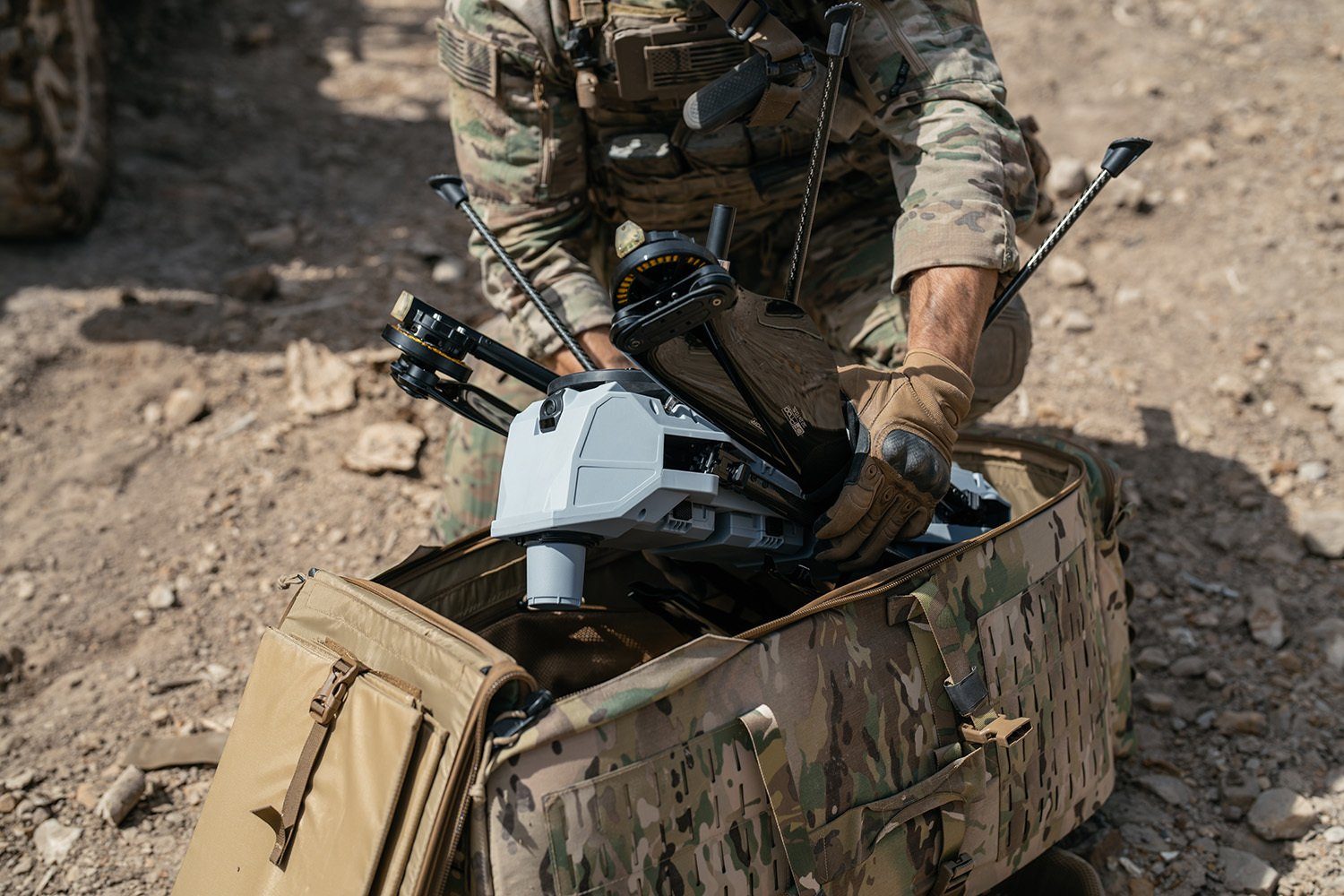Two UAS Platforms Chosen to Meet Directed Requirement for Brigade Combat Teams
The U.S. Army has selected two small uncrewed aircraft systems (UAS) platforms as part of its effort to enhance the capabilities of its Brigade Combat Teams. The Army announced the selection of the Ghost X from Anduril Industries and the C-100 from Performance Drone Works to meet the Company-Level Small UAS Directed Requirement. This award, worth $14.417 million, is part of the first tranche of the program and was made under the Defense Logistics Agency’s Tailored Logistics Support contract.
Aimed at Immediate Capability
The Company-Level Small UAS Directed Requirement was approved in June 2023 to provide Brigade Combat Teams with commercial UAS capabilities that can be used immediately. The systems will allow maneuver companies to perform various tasks, including reconnaissance, surveillance, and target acquisition, with modular, reconfigurable payloads.
General Randy George, Army Chief of Staff, emphasized the importance of this initiative. “Transforming in contact is the way our Army can adapt its formations and get new technology in the hands of Soldiers to experiment, innovate, learn, and change at the pace required,” he said. “The Company Level Small UAS Directed Requirement effort is a great example of how we are achieving this.”
The Directed Requirement will also support learning objectives to help refine future Army needs. This approach allows the Army to continue evolving its UAS programs based on operational feedback.
Rapid Acquisition Process
The U.S. Army highlighted the speed at which it moved from the initial idea to contract awards for production. Douglas Bush, Assistant Secretary of the Army for Acquisition, Logistics, and Technology, noted the importance of this rapid process: “This program is another example of the Army’s ability to rapidly move from an idea to a requirement, to a competition, to testing, to contract awards for production. This shows the acquisition system can move at the pace needed to support the Army, especially in rapidly emerging technology areas like small uncrewed aircraft systems.”
The need for such systems has been driven by real-world conflicts, including those in Ukraine and Gaza. General James Rainey, Commanding General of the U.S. Army Futures Command, reinforced the importance of viewing UAS platforms as complete systems. “This requirement describes the importance of considering the UAS as a system, not just an air vehicle, and also highlights the importance of adaptability,” he said.
Accelerated by Defense Innovation Unit
The program received additional funding from the Defense Innovation Unit (DIU) to accelerate the development of the Company-Level Small UAS. Both selected platforms comply with the 2020 National Defense Authorization Act and are listed on DIU’s Blue UAS list, ensuring they meet Department of Defense (DoD) standards for commercial UAS technology.
“By selecting approved platforms that have been on DIU’s Blue UAS List, this effort demonstrates the value of DIU’s approach to engaging with the commercial market and providing the DoD ready-to-scale solutions at speed,” said Doug Beck, Director of DIU.
Assistant Secretary Bush further emphasized the partnership between the Army and DIU, saying, “This is an example of effective partnership with DIU that achieves DIU’s goal of rapidly bringing commercial technology into DOD programs to meet high priority service requirements.”
Selection Process Completed in Record Time
The Army’s selection process involved thorough proposal evaluations, flight demonstrations, and assessments, which were completed within five months of the Sources Sought Notification release. Brigadier General David Phillips, Program Executive Officer for Aviation, praised the teamwork that made this achievement possible. “Through tremendous teamwork with Army Futures Command, and the Maneuver and Aviation Centers of Excellence, the Army successfully conducted thorough proposal evaluations, executed flight demonstrations, and achieved the selection decision within five months,” he said.
The selection of these two platforms marks a significant step in equipping Brigade Combat Teams with cutting-edge UAS capabilities, which will enhance their ability to execute critical missions in the field.

